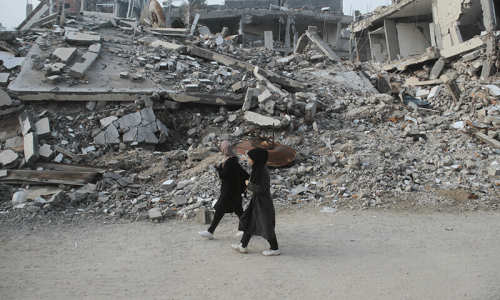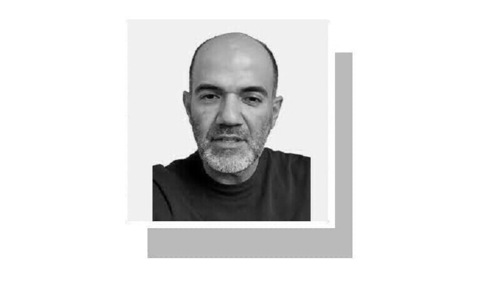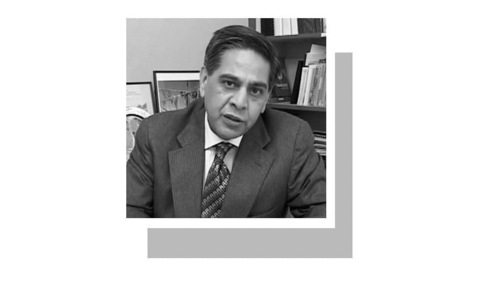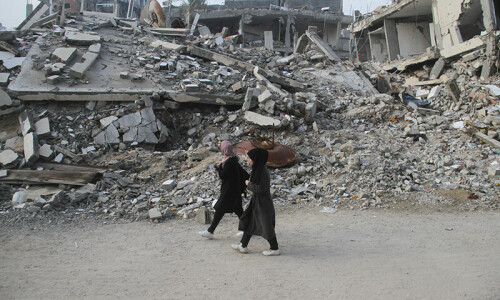The story begins in Haripur in the 1990s, Waris Khan worked at the Tarbela Dam as a labourer and made his way to Karachi with Rs500 in his pocket and a simple dream that his children’s life would be better than his.
Karachi was not welcoming at first; Waris slept on the footpath for a few months, desperately trying to eke out a living. He was convinced that Karachi would “do” something for him and that conviction kept him going.
Then, his luck began to change slowly, he found work at a vegetable stall, where for 16 hours a day he sorted and stacked vegetables. Eventually he set up his own stall, selling watermelons and fruit chaat.
He rented a room in Hijrat colony and got married. On Dec 3, 1993, his son Fazal was born.
Waris worked long hours enabling him to expand his business and he soon set up a large fruit stall in Bath Island.
He would often ask the men and women who frequented his stall about the neighbourhood school called Kensington Grammar School. Very early on, he had made up his mind that Fazal would attend this school. When the time came, he confidently strode in through the gates and insisted that they educate his son.
How did a young man from Hijrat Colony, Karachi, whose parents were poor and uneducated, make it to one of the finest universities in the world?
The school was run by a family who strongly believed in providing quality education for children from low-income backgrounds. Adil Soomro whose family set up the school tells me “Waris paid the fees for Fazal for a few months but after that when he could not afford to, we sponsored him.” Fazal was a keen learner and adapted easily to the school.
As the years passed, Fazal went to school in the mornings and helped his father at the fruit stall in the afternoons. He often bought his books along and would do his homework there. “My colleagues at school would see me at the fruit stall,” he says. “Some of them were accepting of me, others didn’t want to study with the son of a fruit vendor.” He says. “In fact, there came a time, when some of my father’s regular clients stopped coming to our stall and we heard that they were telling people that my father could afford to send me to school because the fruit he sold were so expensive.”
In the years that followed, Fazal’s younger brother also joined school and continued in his footsteps. When the O level results were announced, Fazal received a scholarship at the Lyceum School. His parents were overjoyed, Waris Khan could see the years of hard work paying off.
“Years ago my father’s cousin’s wife had taunted him and told him that he would never amount to anything and that his children would also remain uneducated labourers,” Fazal tells me. “That really hurt my father to the core. When I got into A levels he felt vindicated!”
Fazal fit into Lyceum, playing sports, participating in extra curricular activities. He slowly made a few friends. “Even though I wore the same uniform as them, somehow they knew I wasn’t like them,” he says. But many of his classmates accepted him with open arms and helped him settle in. When the time came to apply for college — he didn’t even consider it an option given his financial constraints — until Adil and his mother who had been guiding him since his early school days encouraged him to.
And then a miracle happened … he got accepted with a partial scholarship to McGill University.
“I remember telling my father that I had been accepted at one of the best universities in Canada. I had gone to the his fruit stall to break the news to him, but I knew there was no way that I would be able to afford to go.” Fazal remembers that he had tears in his eyes and for the first time he felt helpless.
Khaula Jamil a photographer who runs a popular Facebook Page, “Humans of Karachi” was at the fruit stall and met Fazal and heard his incredible story. She published a photograph of him holding his acceptance letter on her page. In order to protect his privacy she didn’t photograph his face.
Immediately dozens of people commented on the post and reached out to Khaula to help Fazal achieve his dream of becoming an engineer. A group of committed Karachiites, started active fundraising and Fazal applied for his Canadian visa. “I had a glimmer of hope …” he says.
At the forefront of all of this was Adil Soomro who through sheer determination set up a scholarship fund for Fazal. Soon, a visa was secured as was funding for the first year of college and Fazal was off to McGill!
“When we told people in my neighbourhood that I was going to Canada, they all assumed I was going to work, to drive a taxi or work at a shop. When we told them I was going to study, I could see the light in their eyes shine. One of them was going to an international university,” says Fazal.
Fazal has just finished his first year at McGill and his younger brother has also been admitted there!
Waris Khan is a proud father.
Why is Fazal’s story important for Pakistan today? Why is it important for me? It shows that in one generation, education can transform a family’s life; it shows that dreams do come true and that Pakistan may be hard and unapproachable from the outside but it is soft and caring on the inside.
Strangers from all walks of life have helped this family, they have done it selflessly without expecting anything in return, and they have done it because, like me, they believe that change and progress is possible, if we all work together.
Fazal belongs to a Pakistan where anyone can excel if we just give them the tools to do so. Adil Soomro and his family empowered Waris Khan’s family, but more than that Waris Khan was a man of vision and men like him will lay the foundation for a better tomorrow.
Note: Funds are still being raised for Fazal and his brother’s education at McGill. To learn about how you can help, please email: educatingpk@gmail.com Every little bit counts!
Published in Dawn, Sunday Magazine, August 31, 2014















































